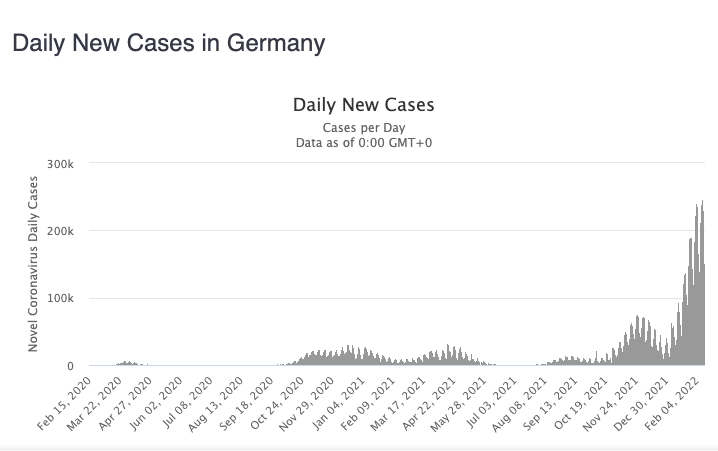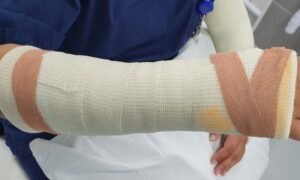As of mid-February, daily COVID-19 infection rates finally are decreasing, as are deaths and hospitalizations. More and more countries are reaching high enough rates of vaccination to say “enough” and suspending COVID restrictions including the Netherlands, Sweden, the Republic of Ireland, the United Kingdom and France. So we’re closing this post … and holding our collective breath to see if the pandemic really is over.
Earlier in the winter, Dispatches staffers were in the Netherlands, Belgium, Germany and other countries and can report that by design, or just out of fatigue, rules are less and less strictly enforced.
Here are the details:
Here are the changes as of 6 January 2022:
Austria
Austria is strict on the unvaccinated, but finding its rules difficult to enforce. So, Austria is further easing COVID restrictions. Austrian officials announced at the end of January that from 12 February, Austria will end 2G rules barring those who are unvaccinated from entering non-essential shops. Only the vaccinated had been allowed to dine out. But in Austria (except Vienna), everyone will be allowed in effective 17 February if they have tested negative.
Since 15 November, anyone not fully vaccinated was only allowed to leave their homes for a limited number of reasons such as shopping for essentials or working.
Austria was the first country in Europe to make vaccination against COVID-19 compulsory for all adults. There will be an “introductory phase” in February, ahead of full implementation in March. Those adults refusing to ge vaccinated will be fined as much as 3,600 euros per month.
But as of the end of January, it’s not certain that will be enforced.
Austria exited its fourth lockdown effective 12 December. Shops, theatres, museums and other cultural and entertainment venues are now open … unless you don’t have a vaccine passport. Then cases started climbing again in a fifth wave, with an historic high of more than 43,000 new cases in 24 hours on 27 January.
Late last year, Austria became the first European country to make COVID vaccination a legal requirement. Unvaccinated residents have been confined to their homes since mid-November, with regular monitoring to make sure they stay there.
About 80 percent of Austrians are vaccinated – one of the lower rates in Europe – with a fairly militant unvaccinated minority.
You can see Austria’s official coronavirus measures here.
Belgium
Belgium, where everything is pretty much open, has become the go-to destination for Dutch shoppers and those longing for a beer in a café. In other words, normal life. Yet, Belgium’s infection rate peaked at 68,285 new cases in 24 hours on 28 January. Go figure.
As of 18 February, work-from-home rules are done and restaurants can stay open as long as the like and serve as many people as they can hold. Just like the old days.
With Omicron cases doubling daily, Belgian officials closed concert halls, theaters, cinemas and conference centers as of 26 December, according to Politico. The public was excluded from sporting events, but Christmas markets and other outdoor gatherings were not affected. Amusement parks closed. But on 28 December the Belgian Council of State ruled measures concerning theaters are “not proportionate,” and didn’t provide enough motives to “understand why going to cultural sector performance venues was particularly dangerous for public health,” according to Euronews.
Hospitals were seeing than 170 COVID-19 cases per day, with hundreds in ICUs. More than 80 percent of Belgians are fully vaccinated.
Working from home is a thing once again, though one day in the office is allowed.
Walk-in testing centers are scheduled to open, and health officials are ramping up vaccinations and booster shots.
Denmark
On 26 January, Denmark became the first nation in the EU to scrap all coronavirus measures, according to Politico. This comes at time when daily new cases are at an historic high. It seems “counterintuitive” to drop restrictions now, acknowledged Danish Prime Minister Mette Frederikson. But hospitalizations are dropping as vaccination rates are rising. About 85 percent of Danes are vaccinated.
Denmark was second in Europe – only behind the United Kingdom – in the number of confirmed Omicron variant cases. So Danish officials closed schools and universities early and are asking everyone who can to work from home. They’re also offering booster shots to anyone 40-years-old and older, according to the Guardian.
On 15 January, Danish officials eased restrictions, reopening cinemas and music venues and allowing spectators at sporting events as hospitalization rates and deaths have decreased despite the surge in cases, according to Reuters.
In December, Danish authorities instituted stricter rules including crowd limits in stores, closing entertainment venues and conference centers, and a mandatory mask requirement in most public places. Now, that’s all but an unpleasant memory.
You can see the official website here.
Finland
Finland is had rules similar to restrictions at the 2020 height of the pandemic. But as of 1 February, limits on low-risk events and businesses will be eased. Restaurants, which were closing at 6 p.m. will be allowed to stay open until 9 p.m.
Until February, restaurants in community-transmission areas have to stop serving alcohol by 5 p.m., according to the Helsinki Times. If they’re a bar mainly selling alcohol, they have to close by 6 p.m. and limit the number of customers to 50 per cent of usual full capacity. That will still be in effect.
Border requirements for COVID tests also are suspended.
France
From 28 February, masks will no longer be required indoors at restaurants, cafés, stores or sporting events. But they’ll still be required on public transport.
At the end of January, French Prime Minister Jean Castex announced France will lift most of its COVID-19 restrictions in February, although vaccine passport and indoor mask-wearing requirements remain in place. As of 2 February, large public venues such as stadiums reopen, and work-from-home requirements are lifted. But to enter restaurants, bars, theaters, museums and stadiums or travel on trains, you must show proof of vaccination.
This is all part of President Macron’s efforts to isolate the unvaccinated.
As of late January, France requires a vaccine passport. Everyone 12 and older needs it to prove their vaccination status if they want to access leisure activities, restaurants and bars, fairs or inter-regional public transport. A negative test will no longer be accepted except for access to health facilities and services.
Rules are also changing on the expiration of vaccine passes. From 15 January, people who were vaccinated more than seven months ago no longer are considered fully vaccinated and need to get a booster shot to validate the proof of vaccination necessary for many everyday tasks. The rule affects about 560,000 people, according to DW.
With daily new cases literally off the chart (see above) reaching an historic high of about 465,000 cases in 24 hours on 18 January, French Prime Minister Jean Castex announced that working from home was “mandatory” from early January.
You can see more travel rules here on the French diplomacy website.

Germany
Even at a pandemic record of 247,000 new cases in 24 hours reported on 10 February, deaths and hospitalizations are dropping rapidly. So German officials are going with less restrictive pandemic measures. The states of Bavaria, Rheinland-Pfalz and Saarland are among the states that have reopened.
But we know from personal experience that you have to present an international vaccine passport to enter stores, restaurants and supermarkets.
Germany is alreading following Austria’s lead, announcing on 2 December that it would lockdown unvaccinated citizens and start the legal process of making vaccinations mandatory by February, according to CNN.
All arrivals in Germany over the age of 12 must present proof of vaccination, recovery or an approved negative COVID-19 test regardless of where they are coming from and by whatever means of transport, according to DW. This remains in force until 15 January. People from all EU countries as well as the Schengen-associated states of Iceland, Norway, Switzerland and Liechtenstein can enter.
Just to make sure, you can see various government websites laying out new COVID rules here, including the Ministry of Health, the Ministry of the Interior and the Foreign Office.
Even before Omicron was identified, some German states were closing Christmas markets as COVID infection rates and hospitalizations were increasing rapidly. About 83 percent of Germans are vaccinated, but there’s a large and militant anti-vaxxer minority.
Greece
Greece has joined Italy, Austria and France in taking a hard line on mandatory vaccines. Greece has already made vaccination mandatory for everyone 60 years old and older. Those who failed to book an appointment by 16 January are facing a 100 euro monthly fine. The government is considering expanding mandatory vaccination to people aged 50 and up, according to Politico.
But tourism-dependent Greece is abolishing requirements for pre-departure tests for fully vaccinated arrivals. It does require arrivals to have boosters.
Other rules are loosening as of 1 February. Bars, nightclubs and restaurants no longer have to close at midnight and music is allowed again as daily new cases drop from about 50,000 in early January to below 20,000.
Greece has instituted a general mask mandate for outdoors and all public areas. Starting 3 January, new rules include the mandatory use of high-protection or double masks at supermarkets and on public transport.
Euronews quotes Prime Minister Kyriakos Mitsotakis as saying only 60,000 of the 580,000 unvaccinated Greeks over 60 years old have signed up for the jab. “But it is mainly people over 60 who require hospital treatment and sadly lose their life. These deaths are unnecessary,” Mitsotakis said. About 90 percent of Greeks are vaccinated.
Italy
As of 12 February, Italy is relaxing pandemic rules, so nightclubs are reopening and you don’t have to wear masks outdoors.
From 1 February, arrivals must show either proof of vaccination, recovery or a negative COVID-19 test. The test can either be a negative lateral flow test taken within 24 hours before arrival or a PCR test taken within 48 hours, according to Euronews.
Before, travelers to Italy from European Union countries had to undergo a COVID test before departure – including those who are vaccinated.
From 5 January, vaccinations are mandatory for people over 50 years old. The measure is among the toughest vaccine mandates in Europe and takes effect immediately, according to the Guardian. From 15 February, people 50-plus working in either the public or private sector will have to present a vaccine passport or proof of recovery from COVID-19.
From 23 December, the unvaccinated are barred from public spaces. Only those with proof of vaccination or proof of recovering from COVID-19 can eat at indoor restaurants, go to the movies or attend sporting events.
You can see the official COVID travel rules here.
On 6 December, Italy introduced strict new rules, along fines to make sure people follow them. Access to many cultural and leisure venues, including nightclubs and sports facilities, is now restricted to those who can prove they are vaccinated or recovered under the new “super green pass” rules, according to media reports.
That means the unvaccinated are excluded from most of public life.
The basic green pass will now be required to use public transport, as well as to access places of work.
Italy registered about 228,000 new infections in 24 hours on 18 January though the death rate has started declining dramatically. You can see the details here on Worldometers.














